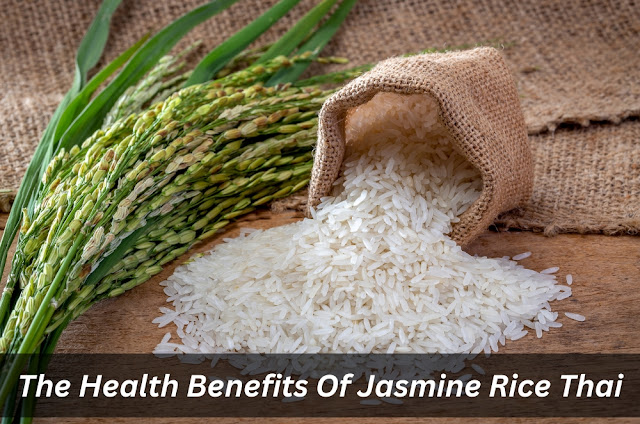The Health Benefits Of Jasmine Rice Thai
Jasmine rice, a fragrant and flavorful rice variety that is a staple in many Asian cultures, is sought after for its health benefits and nutritional profiles. Thai jasmine rice is widely used in Thai cuisine and is celebrated for its delicate aroma and fluffy texture.
Jasmine rice Thai, also known as Thai Fragrant Rice, is a traditional variety of rice that has been cultivated in Thailand for over 100 years. This aromatic rice is grown in the central and northeastern regions of Thailand and is highly valued for its natural aroma and flavour. Some of the most popular varieties of Jasmine rice include Hom Mali, Khao Dawk Mali 105, and Pathum Thani Fragrant Rice.
In this article, we will explore the various health benefits of this rice, including its ability to prevent blood sugar spikes, aid in fetal development, and provide essential nutrients for overall health and wellness. We will also examine the differences between white jasmine rice and other kinds of rice, and discuss why this particular variety of rice is a smart choice for those seeking a healthier diet.
Nutritional value of Thai Jasmine Rice: carbohydrates, protein, fibre, and vitamins
One of the key benefits of Jasmine rice is its nutritional value. This rice variety is a good source of carbohydrates, providing the body with much-needed energy throughout the day. It also contains essential vitamins and minerals such as vitamins B and E, magnesium, and potassium. Additionally, it has a higher protein content compared to other types of rice, making it an excellent choice for vegetarians and vegans.
Low glycemic index and blood sugar regulation
Jasmine rice has a low glycemic index, which means that it does not cause sudden spikes in blood sugar levels like refined grains do. This makes it a healthy alternative for people with diabetes or those looking to regulate their blood sugar levels. Eating Jasmine rice also provides sustained energy levels which helps to avoid fatigue.
Digestive health: fibre and gut-friendly nutrients
Jasmine rice is high in fibre, which is essential for maintaining good digestive health. Fibre helps to regulate bowel movements and prevent constipation. Additionally, it contains gut-friendly nutrients that promote the growth of healthy bacteria in the gut, improving overall gut health and reducing the risk of diseases like irritable bowel syndrome.
Anti-inflammatory properties: essential amino acids and antioxidants
Jasmine rice contains essential amino acids, which are critical for the body's immune system and overall well-being. It also contains antioxidants, which play a role in reducing inflammation and protecting the body against chronic diseases like cancer and heart disease.
Gluten-free and hypoallergenic: benefits for celiac and allergy sufferers
Jasmine rice is gluten-free and hypoallergenic, making it ideal for people with celiac disease or gluten intolerance. It does not contain any of the allergens commonly found in other grains like wheat, barley, or rye, making it a safe food for people with food allergies.
Versatile and delicious: easy-to-cook recipes from salads to stir-fries
Jasmine rice is versatile and can be used in many different recipes. From simple rice salads and rice paper rolls to complex stir-fried dishes, there is no limit to what you can create with this amazing rice variety. You can also find a range of healthy cookbooks and recipe ideas that incorporate Thai Jasmine rice as a key ingredient, which offers a fun and exciting way to explore new cuisines.
Sourcing and cooking tips: choosing the best quality Jasmine rice and cooking it perfectly
When sourcing Jasmine rice Thai, it is essential to look for the best quality grains available. Make sure you choose rice that has a fragrant aroma and is free from any defects. Cooking Jasmine rice is simple. Here are a few tips:
Rinse the rice thoroughly before cooking.
Place the rice and water in a pot and bring it to a boil.
Then reduce the heat and let it simmer until the rice is fully cooked.
Once cooked, fluff the rice with a fork and serve.
Thai Jasmine rice is a delicious and healthy food that deserves to be a staple in any balanced diet. With its low glycemic index, high fibre content, essential vitamins, and hypoallergenic properties, it provides a range of health benefits that go beyond its delectable taste and aroma. With the right sourcing and cooking techniques, anyone can easily incorporate Thai Jasmine rice into their diet and enjoy all its amazing health benefits.



Comments
Post a Comment